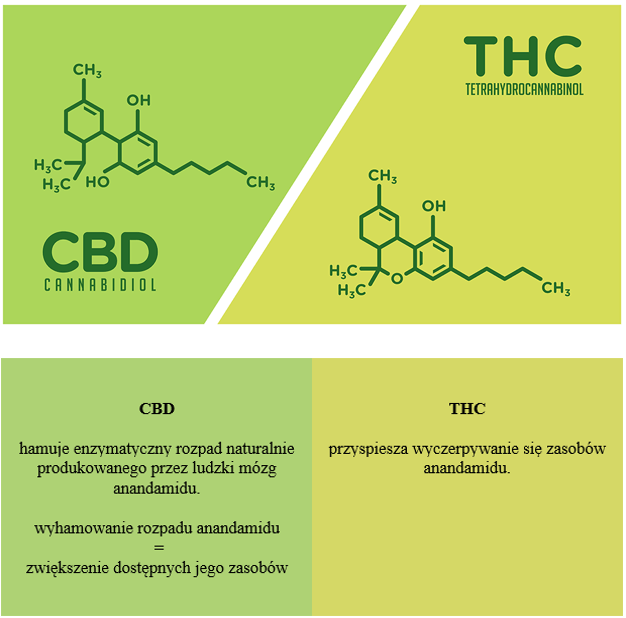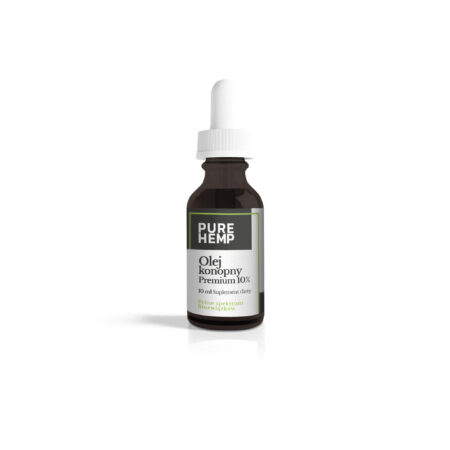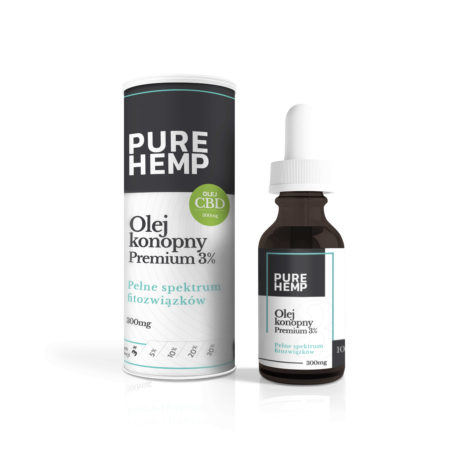What is depression?
Official definitions suggest that depressive disorders, also commonly known as depression, are characterised by:
- a sudden lowering of a person's mood,
- in a negative direction,
- of moderate to strong intensity of the intensity of the changes experienced,
- persisting for more than a few weeks.
There may be one or many reasons for the changes. It also happens that it is difficult to identify any unambiguous reason.
If you want to read more about the characteristics of depressive disorders be sure to look here: https://www.rcpsych.ac.uk/mental-health/translations/polish/depresja-depression.
It is a very common statement that it is the disease of civilisation in the 21st century - it affects both older and younger people. For depression, our education or even more so our income is not important - it can affect anyone.
Treatment of depression comes down to: pharmacotherapy, psychotherapy and psychoeducation, phototherapy, electroconvulsive therapy and the more natural measures of increasing physical activity and making significant changes to daily diet.
It is within the framework of natural methods to combat and counteract depression that the inclusion of hemp preparations with naturally occurring cannabinoids in the cannabis plant in the daily diet is gaining popularity worldwide.
The cannabidiol (CBD is a commonly used abbreviation) found in CBD oil, for example, appears in numerous scientific studies as a potentially effective cannabinoid for the treatment of depression. Importantly, it is 100% a natural chemical compound of plant origin.
Interestingly, depression is among the three most common mental disorders for which patients specifically reach for CBD hemp preparations such as CBD oil or CBD capsules. Reports from consumers and their positive feedback on the effectiveness of e.g. CBD oil for depression is arriving at an unprecedented rate.
Anandamide vs CBD and THC
In cannabis plants, the primary cannabinoids are THC (Δ9-tetrahydrocannabinol) and CBD (cannabidiol). They exhibit antagonistic effects which means that CBD nullifies the effects of THC. And what are these effects? THC has an intoxicating effect, induces feelings of euphoria, affects cognitive function, but also relaxes. Large, regularly taken doses of THC are considered harmful to the human brain. Excessive THC consumption can lead to psychosis, lack of motivation and even permanent negative changes in cognitive function.
Both THC and CBD interact with the endocannabinoid system in the human body. However, their effects, as already mentioned, are opposite.
Figuratively speaking, CBD slows down the process of anandamide depletion, while THC speeds up the process.
However, this does not mean that THC is exclusively a harmful cannabinoid and should not be in the preparation at all. On the contrary. Its small presence in hemp preparations is even necessary in order to achieve the so-called synergistic effect. THC in full spectrum hemp oil is present in just such a marginal and, importantly, legal amount. This amount is so small (less than 0.2%) that it does not have an intoxicating effect. When acting together, THC and CBD have greater potential than either molecule acting alone.
What is anandamide (AEA)? What is its importance for people suffering from depression? Read on!
Depression and the endocannabinoid system
The endocannabinoid system is a key system responsible for regulating basic vital human physiological processes such as energy metabolism, neurohormonal and neuroimmune connections, motor activity, among others, mood and motivation or fat metabolism.
The endocannabinoid system includes a neurotransmitter called the anandamide (AEA). Anandamide is a neurotransmitter naturally produced in the human brain. Its production is stimulated, for example, by physical activity and, to a lesser extent, by so-called body work (massage!). Its supply is "used up" to maintain the body's normal functioning in the sphere of mental health, among other things.
As demonstrated in this study: https://www.ncbi.nlm.nih.gov/pubmed/23580381 wysokie stężenie anandamidu jest kojarzone z obniżonym ryzykiem wystąpienia symptomów psychotycznych.
High levels of anandamide have also been associated with a positive effect on the levelling of depressive and anxiety symptoms. The mechanism is still not well understood, but it seems logical that a severely depressed mood over a case-by-case period of time and in the absence of measures to improve it, leads to an intensification of the influx of negative thoughts. As it develops, depressive disorders can develop into even more dangerous forms of disorders, e.g. psychosis, delusions or schizophrenia. The possibly rapid deceleration of this process may prove crucial in the successful treatment of mental dysfunction.

CBD oil supplementation in depression
Do you wonder how it works? Is there any evidence for it? In what form is it best to take CBD?
Well, several experiments have shown that CBD cannabidiol helps maintain the normal function of serotonin 5-HT1A receptors, whose dysfunction causes anxiety leading to persistent negative mood changes (depression) over a long period of time. Maintaining the normal function of these receptors reduces the risk of depressive symptoms and, in the case of people already suffering from the disorder, slows the progression of the disease in undesirable directions.
The amount of serotonin in the body increases, and with it the symptoms of depression and perceived anxiety are minimised.
The safest form of CBD intake appears to be oral use in the form of drops. CBD oil, like full spectrum hemp oil with CBD, is administered with an applicator or dropper under the tongue. After approx. 30-60 seconds, the preparation is swallowed. The bioavailability of CBD in this form is high.
It is extremely important that the sick person realises the situation they are in and wants to help themselves. In any case of depression, consultation with a psychiatrist and an accurate diagnosis is recommended. There are obvious benefits for the patient in having well-tailored psychotherapy.
In turn, the use of CBD can have a positive effect on mood - reducing the level of stress experienced, as well as improving the quality of one's sleep.
This last factor in particular deserves attention. The scientific and medical community agrees on the importance of good quality sleep on a person's mental and emotional health. Patients struggling with depression and anxiety very often complain of sleep problems, shallow sleep and frequent awakenings during the night making it difficult to achieve adequate levels of recovery.
Regular use of CBD in the form of full spectrum hemp oil is a potentially very effective method of combating the hindering recovery and balance symptoms of the aforementioned disorders.
Why choose preparations full spectrumrather than preparations based on the addition of CBD isolate in crystalline form when treating depression and anxiety? Because full spectrum hemp preparations contain the full composition of cannabinoids surrounded by terpenes and flavonoids found in the hemp plant. The full composition of the aforementioned plant compounds acts more widely and effectively than each of them individually. The full spectrum of phytochemicals is the key to effectiveness.

Treatment of recurrent sadness with CBD
CBD can also be used as an adjunct to standard psychotropic drugs. It is worth noting that it does not react with them and can be used in parallel. The state of constant depression can take on a milder or more severe form, in which case we speak of bipolar affective disorder - this is also commonly referred to as manic depression.
A depressive state can accompany us for six months or even for life. Sometimes it also takes the form of seasonal affective disorder and appears from time to time, e.g. once a year in autumn and winter.
According to the World Health Organisation, 350 million people of all ages suffer from depression.
CBD is considered by the patient community to have much more effective results than traditional drug treatment, although this opinion still needs to be clearly confirmed by the scientific world.
Patient testimonies show that the use of CBD hemp oil in the treatment of depression very often has similar effects to the use of SSRI drugs. The difference between the two is that CBD, unlike traditional drug therapy with SSRIs, does not cause severe and adverse side effects that make daily life difficult for patients.
The mechanism of action of CBD still needs to be clarified. However, the process, in its logical premise, appears to be relatively simple and possibly looks as follows:
- CBD indirectly increases the concentration of serotonin in the body (one of the so-called happiness hormones),
- Increased serotonin levels mean a better, more positive mood and attitude to life,
- Maintaining an improved mood in the medium to long term, among other things, increases quality of life, reduces tension, helps the body regulate homeostatic processes and ...
- It causes patients to experience life from a heightened, much more positive emotional and mental level by creating positive memories with which they 'fill' their memory by creating new neuronal connections, creating a favourable, positive environment for life including, and perhaps especially, for the formation of new neurons.
Figuratively speaking, the system of systems that is the human body 'flourishes' in a place considered the cradle of consciousness, and CBD regulates the environment in which this process occurs.

CBD and depression - how to use?
Depression is a difficult illness, but despite appearances, recovery from it is possible. It all depends, of course, on the patient's determination, his willingness to fight for his future. The people he surrounds himself with and the treatment methods implemented are also important.
Taking the right medication and preparations such as CBD oil or full spectrum hemp oil is vital, but equally important is the support from the people we surround ourselves with. The fight against this disease is difficult and the road to recovery is winding and bumpy. For some people the treatment may take a few weeks, for others a few months, in difficult cases the treatment lasts for years, and in extreme cases the disease accompanies the person for life.
Fortunately, nature provides us with potentially effective and healthy solutions in the form of CBD, among others, which are definitely worth taking advantage of to see if the numerous positive reviews about their effectiveness are true. There has been a wealth of research worldwide proving that CBD use is 100% safe for humans. This is also confirmed by a World Health Organisation report on CBD published in 2018. The same cannot be said for chemical pharmaceuticals.
Modern medicine rarely, not to say never, has the tools to assess the potential efficacy and, at the same time, assess the risk and severity of side effects of pharmacological drugs before a patient starts therapy. As a result, patients waste valuable time "searching" for the right drug for them that will help with depression or anxiety and, at the same time, will do little or no harm to the patient's other vital processes. A guarantee that this will definitely happen will not, or at least should not, be given by any doctor.
CBD differs from pharmaceutical drugs in that 'if it doesn't help it almost certainly won't hurt'. At the same time, this 'won't help' does not mean that CBD doesn't work. CBD always works. Its presence in the body maintains the proper functioning of vital physiological, neurological, immunological and emotional processes. It supports the proper functioning of the endocannabinoid system, and this system is responsible for keeping the body in a state called homeostasis.
Adjusted, efficient and properly functioning processes make up the 'environment' in which a person's everyday life is easier and the body functions properly. This helps a lot, but may not be enough. The process of recovering from depression and getting rid of anxiety is complex - multi-faceted and multi-step. The claim that it is enough to take a pill or take a few drops of any preparation to 'cure' depression is wrong.
CBD makes our happiness and wellbeing hormone rise, making the anomaly lighter to bear and, over time, subsiding. Scientists believe that CBD is effective for around 6-8 hours, plus it works extremely quickly. The risk of negative effects on a person's condition is virtually nil - by using CBD sensibly, as directed, we need not fear that our condition will worsen.
To conclude this paragraph, CBD can also be used to support the treatment of postpartum depression in non-breastfeeding mothers.
CBD dosage for depression and anxiety
People suffering from depressive disorders who are considering using CBD very often wonder how to dose the oil.
Firstly: CBD persists in the body for 6-8 hours, so it is important to take CBD e.g. in the form of full spectrum hemp oil continuously over a long period of time 3-4 times a day to maintain the presence of CBD in the body around the clock. Regular daily use increases the likelihood of rapid results and potentially minimises the symptoms of the disease.
Secondly: There is no one right dosage level of CBD that is effective in every case and for every patient. In the beginning, it is advisable to start with a low dose and gradually adjust it (up or down). The most important thing is to listen to your body and respond appropriately to its signals. Among the tips for CBD dosage for depression are recommendations start with a dose of approximately 25 to 50 mg CBD per day spread over 3-4 applications. The number of mg per drop of CBD oil depends on its concentration and the design of the applicator in question.
Example: 1 drop of 10% CBD oil is about 5mg CBD = about 2 drops of 5% CBD oil.
It is worth mentioning that the higher concentration of the oil means that we can take fewer drops while maintaining the same amount of CBD in the dose.
CBD application is extremely easy and hassle-free. Take the oil in drop form under the tongue, hold for 30-60 seconds and swallow.
Thirdly: It is recommended to take preparations containing the full spectrum of cannabinoids (so-called Full Spectrum). They also contain other beneficial chemical compounds, terpenes and flavonoids. Full Spectrum CBD hemp oil is produced from a plant extract. Preparations based on pure CBD (added, for example, in the form of a crystallised isolate to regular food-grade hemp seed oil) show lower efficacy due to the lack of synergistic effect.
CBD oil for depression and anxiety - a real-life example
Paul is 37 years old. He suffered from moderate depression combined with severe anxiety triggered by even low intensity external stimuli. His emotional state and mood were negative and he could not cope with the influx of negative thoughts. Influenced by numerous opinions from people struggling with depression, he had already decided not to take pharmaceutical drugs, but to seek the help of a specialist in psychotherapy. He also became much more active in sport and changed his eating habits to healthier ones.
He started taking CBD about 5 months after diagnosis. He started with CBD oil 10% PUREHEMP by dosing it 3 times a day (8:00, 14:00 and 20:00) with 3 drops each. He was therefore taking approx. 45mg of CBD per day. The suppression of negative thoughts occurred the day after the first dose. Paul became emotionally calmer, rating the state of mental tension as significantly lower. After a few days, he observed an improvement in the quality of his sleep - the frequency of awakenings from sleep decreased, sleep became deeper and he woke up much more recovered and rested. During this period, he did not make any other changes to his diet or habits (these he had already made earlier, i.e. in the first month after diagnosis). Duration of CBD oil use to date (10.10.2019): 4 months.
The example given is a real example. It has been simplified for the purposes of this publication. Paul believes he has recovered from his depression, ridding himself completely of anxiety and intrusive thoughts in about seven months from diagnosis, i.e. two months after taking his first dose of CBD oil. To date, he shows no signs of illness. He considers the moment he incorporated CBD into his diet as crucial, but it was not the only factor in his success. He continues to microdose CBD prophylactically.
Summary of the article "CBD and depression".
Patients struggling with psychological and psychological problems and disorders could potentially be of great interest in CBD preparations. Their efficacy among patients suffering from depression, anxiety and other psychological disorders, although still not scientifically proven conclusively, seems to be real in light of the increasing number of reports and testimonials from people using CBD oils or CBD capsules on a day-to-day basis and in view of the data available and the conclusions of the research conducted to date.
There are accounts of people who deny the efficacy of CBD, but it is important to note that these opinions are in the vast, overwhelming minority.
Doctors, in the absence of academically acceptable sources of medical knowledge, but with a rare influx of positive feedback from consumers who have decided to 'give it a try', are increasingly adopting the an attitude of tacit acceptance manifested by the phrase 'if it doesn't help, it doesn't hurt'. This attitude of the medical community is telling and suggests that the in the near future CBD will become widely accepted as a supplement to support traditional therapies for depression.
You can also find very positive medical opinions on the use of CBD for depression.
Will it become a 'drug' in the literal sense of the definition of the word? It is difficult to say. Its beneficial effects and positive effects are unusual and still not fully understood. One thing is certain the subject "CBD and depression" is and will continue to be topical, and anyone looking for at least a little light in a dark world of fear and depression should at least take an interest in it.
Did this article appeal to you? Would you like to try a high quality CBD oil?
You can find disclaimers regarding the content published on the pages of this blog by clicking here.


